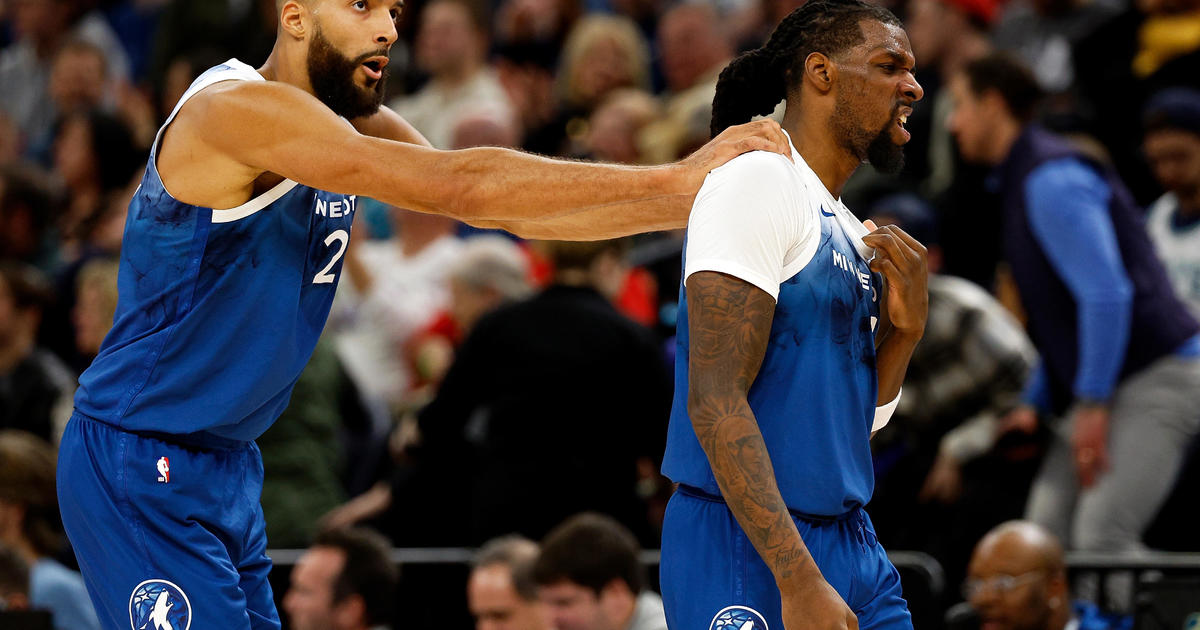Minn. Committee Passes Stadium Bill To Full Senate
ST. PAUL, Minn. (AP) — The $1 billion Minnesota Vikings stadium bill narrowly survived a skewering late Friday in the Senate Taxes Committee, which moved the bill to the Senate floor as the team's decade-long push for a new home drew closer to a resolution.
It was the toughest test yet for the proposed stadium subsidy, which is expected to now face marathon debates and close votes in the House and Senate. Lawmakers hope to adjourn their session for the year by midnight Monday, and the stadium saga is likely to fill those closing hours with plenty of drama.
The bill to build a new stadium on the Metrodome site in downtown Minneapolis needs 68 votes in the House and 34 votes in the Senate to pass. All the committee votes that took the bill to both the House and Senate floors where "without recommendation," a sign that many lawmakers have strong qualms about a stadium subsidy that the Minnesota Vikings have been seeking for the last 10 years. Team officials call the 30-year-old Metrodome outdated and unprofitable.
Stadium critics on the Senate panel zeroed in on the financing scheme that's proposed to cover a $400 million state subsidy for the project. The current proposal calls for an expansion of gambling in bars and clubs, with the newly generated tax revenue going to cover yearly costs of paying off construction bonds.
Foes of that funding source criticized it as unreliable and immoral, and moved to replace the gambling revenue with sales taxes on all transactions in the new stadium: from tickets and concessions, to Vikings merchandise, to indoor advertising and other money sources.
"It's about making it market based rather than taking revenue from everyone," said Sen. John Howe, a Republican from Red Wing who put forward the plan, which he described as user fee-based. "The people who use the stadium the most are the ones who should pay for it the most."
NewsRadio 830 WCCO's Edgar Linares Reports
Podcast
But the Vikings and their legislative allies strenuously objected to that approach. Vikings vice president Lester Bagley said it would cost the NFL team money — which, he said, would mean functionally abandoning the negotiated deal between Vikings executives, members of Gov. Mark Dayton's administration and the city of Minneapolis. That deal calls for the Vikings to cover $427 million of the $1 billion cost, and the city of Minneapolis to put up $150 million.
"I think it sends a pretty rough message to the folks who've been working on this, including the governor, who made this framework," said stadium supporter Sen. Geoff Michel, R-Edina. "This rips out the backbone of the bill."
While the stadium sales tax proposal failed on a close vote, it's likely to come up again as an amendment on the Senate floor. It was not clear what the sales tax rate would be based on a lack of complete financial information from the team — Howe said he would set it at the lowest rate possible to cover the yearly bond costs.
Sen. John Marty, a longtime critic of publicly funded stadiums and one of the Senate's strongest liberals, teamed up with conservatives on the Senate panel to disparage major aspects of the bill, which passed the committee on a 7-6 vote. They focused in particular on the gambling expansion, which would let Minnesota charities that operate games of chance in bars and clubs to upgrade to new, electronic versions of some games.
Many lawmakers have questioned the Dayton administration's projections of how much would be raised, saying that gambling is an inherently unpredictable source of dollars for the state.
"Gambling is not a very consistent source of revenue, it never has been," said Sen. Gretchen Hoffman, R-Vergas. "And it does have its social costs."
(© Copyright 2012 The Associated Press. All Rights Reserved. This material may not be published, broadcast, rewritten or redistributed.)



